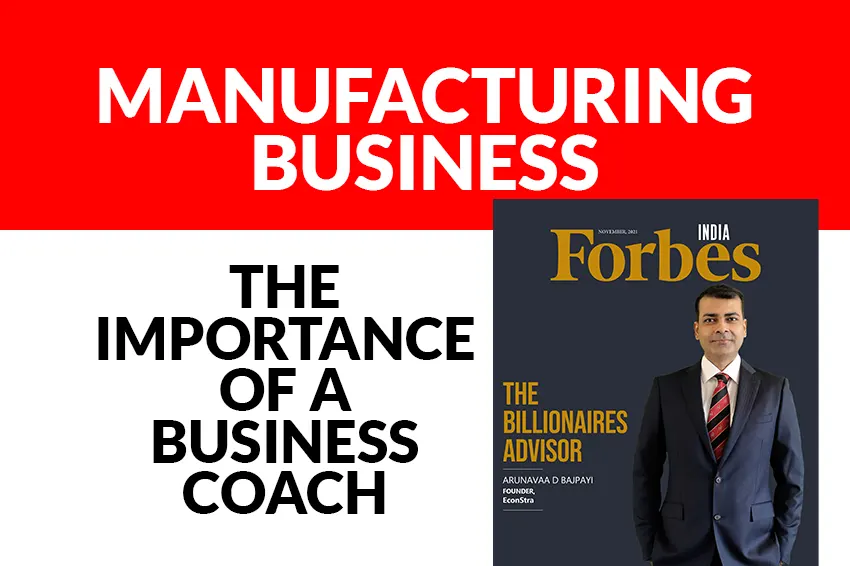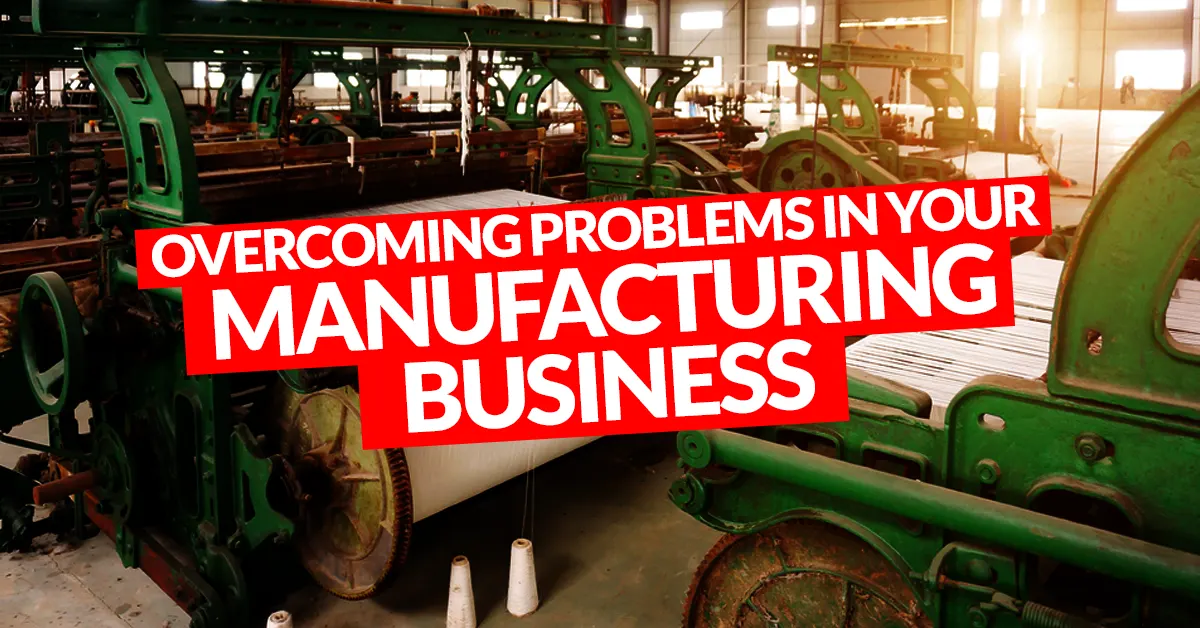by Subhadeep Chowdhury
Share

In today’s rapidly evolving industrial landscape, manufacturing companies face numerous challenges. From optimizing production processes to navigating market fluctuations, the pressure to maintain competitiveness is immense. This is where a business coach can make a significant difference. Let’s dive into why a business coach is essential for manufacturing companies and how they can drive growth and efficiency.
Understanding the Role of a Business Coach
What Does a Business Coach Do?
A business coach works closely with business owners and managers to identify strengths, weaknesses, and areas for improvement. They provide guidance on strategic planning, operational efficiency, leadership development, and more. Essentially, they act as a mentor and advisor, helping companies reach their full potential.
Skills and Expertise of a Business Coach
Business coaches bring a wealth of experience from various industries. They are adept at problem-solving, strategic thinking, and effective communication. Their expertise allows them to offer valuable insights and actionable advice tailored to the unique needs of a manufacturing company.
Why Manufacturing Companies Need Business Coaches
Addressing Industry-Specific Challenges
Manufacturing companies often encounter challenges such as supply chain disruptions, regulatory compliance, and technological advancements. A business coach can help navigate these issues by providing industry-specific knowledge and strategies.
Enhancing Operational Efficiency
Operational efficiency is crucial in manufacturing. A business coach can identify bottlenecks, streamline processes, and implement best practices to enhance productivity and reduce costs.
Benefits of Hiring a Business Coach
Improved Leadership and Management Skills
Effective leadership is key to a successful manufacturing company. A business coach can develop leadership skills within the management team, fostering a positive and productive work environment.
Strategic Planning and Execution
A business coach assists in creating and executing strategic plans that align with the company’s long-term goals. This includes market analysis, competitive positioning, and growth strategies.
Increased Productivity and Profitability
By optimizing operations and implementing efficient practices, a business coach can significantly boost productivity and profitability, ensuring the company remains competitive in the market.
How to Choose the Right Business Coach
Evaluating Credentials and Experience
When selecting a business coach, it’s essential to evaluate their credentials and experience. Look for coaches with a proven track record in the manufacturing industry and relevant certifications.
Compatibility with Company Culture
A good fit between the coach and the company’s culture is crucial for a successful partnership. The coach should understand and align with the company’s values and work style.
Success Stories and Testimonials
Reviewing success stories and testimonials from previous clients can provide insight into the coach’s effectiveness and the results they can deliver.
The Coaching Process
Initial Assessment and Goal Setting
The coaching process begins with an initial assessment to understand the company’s current state and identify areas for improvement. This is followed by setting clear, achievable goals.
Customized Coaching Plans
Based on the assessment, the business coach develops a customized coaching plan tailored to the company’s specific needs and objectives.
Ongoing Support and Evaluation
Continuous support and regular evaluations ensure the company stays on track and achieves its goals. The business coach provides feedback and adjusts strategies as needed.
Real-Life Success Stories
Case Study: Company A
Company A, a mid-sized manufacturing firm, saw a 30% increase in productivity and a 20% reduction in operational costs after engaging a business coach. The coach helped streamline their production processes and develop a robust strategic plan.
Case Study: Company B
Company B, a small manufacturing company, struggled with leadership issues and declining sales. A business coach helped improve management skills and implement effective sales strategies, resulting in a 25% increase in revenue.
Overcoming Common Misconceptions
“Coaching is Only for Struggling Businesses”
Many believe that only struggling businesses need coaching. However, successful companies also benefit from coaching by gaining new perspectives and maintaining their competitive edge.
“Coaching is a One-Time Fix”
Coaching is an ongoing process rather than a one-time fix. Continuous support and regular evaluations are crucial for sustained growth and improvement.
Measuring the ROI of Business Coaching
Key Performance Indicators (KPIs)
To measure the ROI of business coaching, it’s essential to track key performance indicators (KPIs) such as productivity, profitability, and employee engagement.
Long-Term Benefits
The long-term benefits of business coaching include improved leadership, enhanced operational efficiency, and sustained growth, all of which contribute to a strong ROI.
Future Trends in Business Coaching for Manufacturing
Technological Advancements
As technology continues to evolve, business coaches will increasingly focus on helping manufacturing companies adopt and integrate new technologies to stay competitive.
Emphasis on Sustainable Practices
Sustainability is becoming a critical focus for manufacturing companies. Business coaches will play a vital role in helping companies implement sustainable practices and meet regulatory requirements.
Conclusion
In conclusion, a business coach can be a game-changer for manufacturing companies, providing the expertise and guidance needed to navigate industry challenges and drive growth. By improving leadership, enhancing operational efficiency, and developing strategic plans, a business coach can help companies achieve their full potential and remain competitive in a rapidly evolving market.
FAQs
What qualifications should a business coach have?
A business coach should have relevant certifications, extensive experience in the industry, and a proven track record of success.
How long does the coaching process typically take?
The coaching process varies depending on the company’s needs and goals. It can range from a few months to several years of ongoing support.
Can small manufacturing companies afford a business coach?
Yes, many business coaches offer flexible pricing options and tailored packages to suit the budget of small manufacturing companies.
What are the first steps in engaging a business coach?
The first steps include identifying the company’s needs, researching potential coaches, and scheduling initial consultations to find the right fit.
How do I know if my company needs a business coach?
If your company is facing challenges, seeking growth, or looking to improve operational efficiency, a business coach can provide valuable support and guidance.
STAY IN THE LOOP
Subscribe to our free newsletter.
In today’s rapidly evolving business landscape, staying ahead of technological changes is no longer an option but a necessity. As industries across the globe embrace digital transformation, Indian companies are also under immense pressure to keep up. The rise of automation, artificial intelligence, and data-driven decision-making has left many businesses scrambling to adapt. However, with […]
Ever feel like your manufacturing business is a constant uphill battle? You’re not alone. Many manufacturing business owners face the same tough challenges every day. Let’s dive into a typical day and see what obstacles you face. Morning: Tackling Labor Shortages The day starts and you’re already facing a big issue: not enough workers. Skilled […]


